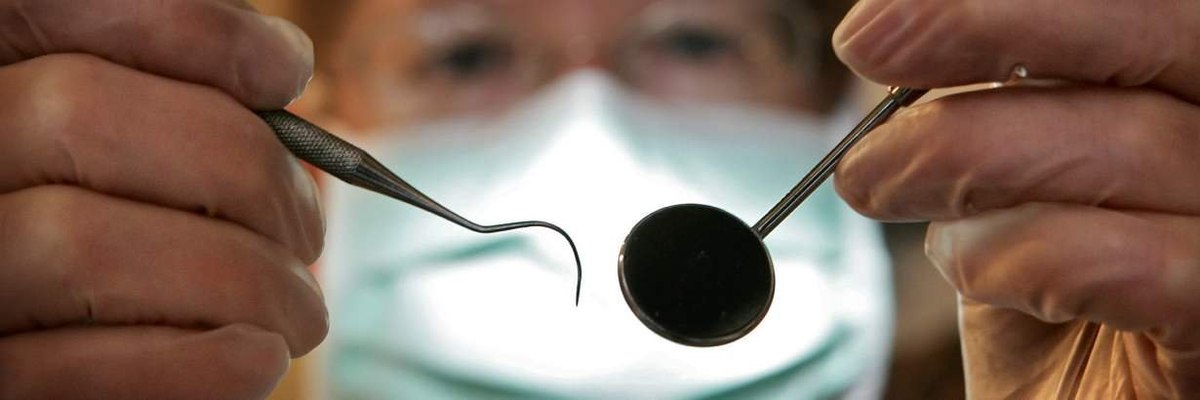Britons report pulling their own teeth out and making their own dentures
From extracting teeth to attempting root canals and melting down ‘polybeads’ to use as false teeth, Britons have shared desperate experiences in a survey that gives new insights into the unfolding crisis in dentistry.
A growing number of towns and cities across the country have no access to NHS dentistry for new patients as people linger on lengthy waiting lists, with a new YouGov survey showing one in five Britons (22%) are currently not registered with a dentist.
The results also show that the majority of the unregistered are unable to access, or afford, treatment. More than a third 37% say it’s because they cannot find an NHS dentist to take them on, with a further 5% on a waiting list, while another 23% say they’re not registered because they don’t think they can afford to be treated.
One in ten Britons claim to have carried out their own dental work
Among the most concerning consequences of Britain’s growing dental deserts is the willingness of some to attempt procedures they need but can’t get.
One in ten Britons (10%) admit to attempting their own dental work, with most doing so because they were unable, one way or another, to get an appointment with a dentist.
Of those who say they’ve tried to perform dentistry on themselves, most (56%) did so within the last two years, including 36% who did it within the last year.
Overall, that means 6% of Britons say they have tried their hand at doing their own dental work within the last two years.
Britons report using cement and superglue on their teeth
The survey revealed cases of people using cement and superglue to fix crowns and dentures, killing an infection with urine, using ‘heated polybeads’ to replace a missing tooth and applying chemical metal (an adhesive usually used for household or outdoor repairs) as a filling.
A third (34%) of those who revealed what kind of dental work they’d attempted say they pulled out – or tried to pull out – their own teeth.
A similar proportion (32%) gave themselves fillings, while others removed or repaired crowns (4%), tried their hand at a scale and polish (4%), filed their broken teeth down (3%) or treated their own abscesses and infections (3%).
Why have Britons been attempting their own dentistry?
One in five of those who attempted a procedure (20%) did so because they couldn’t get a timely appointment, with an additional 15% saying Covid-related lockdowns prevented them from getting one.
And 18% of Britons who tried their hand at dentistry say they did it because they couldn’t get registered with a dentist.
Among other reasons cited were fear of going to the dentist (14%) and an inability to pay for treatment (14%).
Of those who did so within the last two years, the most common reasons they did were because they could not get registered (22%) or they could not get a timely appointment (22%), while 18% say they could not get an appointment because of lockdowns.
One in eight Britons have no confidence they can afford NHS dental care
Amid an escalating cost of living crisis, one in eight Britons (12%) say they currently have no confidence in their ability to afford even routine NHS dental care. Another 11% are not very confident they can.
For emergency NHS treatment, confidence is lower still, with 32% not very or not at all confident they can afford it.
Confidence drops even further when considering private dental care, with at least half of Britons saying they are not very or not at all confident they can afford routine (52%) or emergency (57%) private treatment.
When it comes to getting timely dental care in an emergency, four in ten Britons (41%) say they’re not very or not at all confident they can get a routine appointment with a dentist when needed, and 37% are similarly unconfident when it comes to getting an emergency appointment.
One in 12 Britons have avoided the dentist’s chair for more than a decade
The NHS recommends routine check-ups at intervals of at least six months and at the most, two years.
And despite the ongoing problems in dental care, 46% of Britons say they’ve seen a dentist within the last six months, rising to 70% for those who’ve seen one within two years.
However, a quarter (27%) of Britons haven’t been for two years or more, including 8% who admit it’s been more than a decade since they were in a dentist’s chair.
Among those not currently registered with a dentist, the picture is more worrying – just 19% have visited a dentist within the last two years, while 31% say they haven’t been in more than ten years.
Picture: Getty










